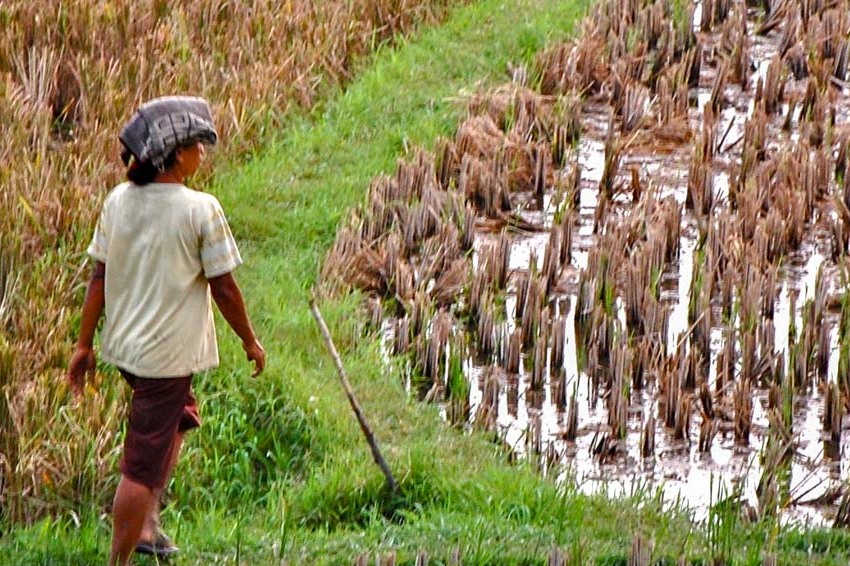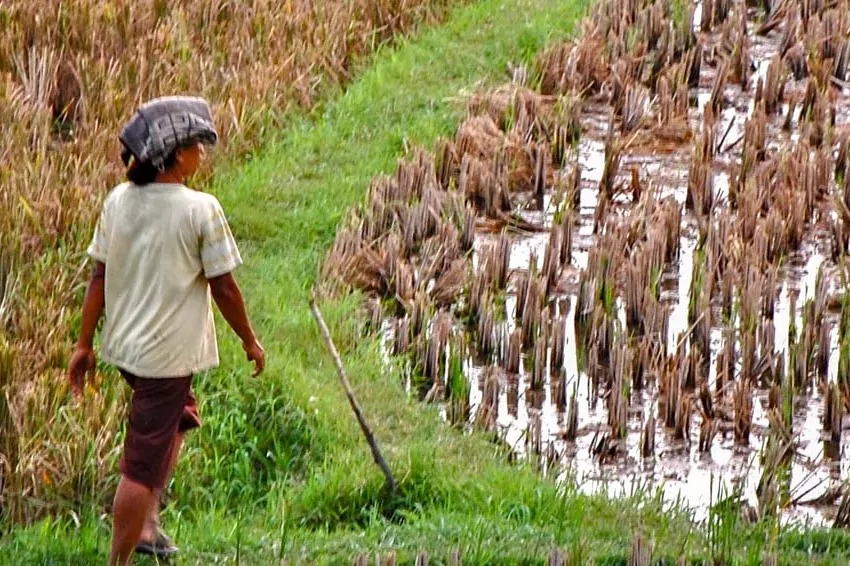

(c) Tanamerah
Maria Loretha, an Indonesian, used to study law in an East Java university. However, it is not her legal expertise that has made her a household figure in the East Flores regency of East Nusa Tenggara.
The 54-year-old activist’s dedication to educate people about sorghum, a grain plant, has earned her the moniker “Mama Sorghum.”
Mdm Loretha has been traveling for almost ten years to teach communities how to plant sorghum and educate them on its cultivation.
Ms. Loretha received the moniker ‘Mama Sorghum’ in 2013 due to the fact that, at the time, she was likely the only person in the country who traveled to numerous areas to introduce sorghum.
She had never heard of the plant until 2007, when a neighbor handed it to her.
“I was interested in preserving it because of its flavor,” she added, characterizing it as rather nutty and sweet.
“When a neighbor offered it to me, I inquired whether there were any seeds for me to plant,” Ms. Loretha recalled, adding that there were insufficient sorghum seeds to plant on her 3-hectare plot.
Presently, around eight East Nusa Tenggara regencies are home to approximately 1,000 farmers, the majority of whom are women.
In June of last year, President Joko Widodo visited the area and was amazed by how the villagers produce the crop.
Even more so, he is persuaded that sorghum should replace rice and wheat as the national staple diet.
It would also lessen Indonesia’s reliance on wheat exports, which have been negatively impacted by climate change and the Ukraine conflict.
“We desire a variety of (food) options that we may develop in our nation for the sake of food diversification and alternative food ingredients.”
In August, Jokowi ordered his ministries and key officials to create a production plan for sorghum in Indonesia.
According to analysts with whom CNA consulted, sorghum might be a solution to the diminishing rice reserves that require the government to buy.
This month, the government agreed to import 200,000 tons of rice to refill depleting rice supplies at the state logistics agency (Bulog).
NextRise 2025-the biggest startup and tech event in Asia-is ready to take place in Seoul on June 26-27 at COEX,…
On this reunion occasion marking 20 years after their debut, the anticipation of the fans seems to be reaching greater…
South Korean boy band RIIZE is returning to Singapore on January 24, 2026 as part of their “RIIZING LOUD” Asia…
Experience Japan’s longest running all-night rock festival, RISING SUN ROCK FESTIVAL 2025 in EZO, with incredible acts, a wealth of…
United States Immigration and Customs Enforcement conducted audits of three Denver cleaning companies, leading to more than $8 million in…
Cricket fans, rejoice! The Olympic Council of Asia (OCA) has confirmed that cricket will be part of the 2026 Asian…
This website uses cookies.
Read More